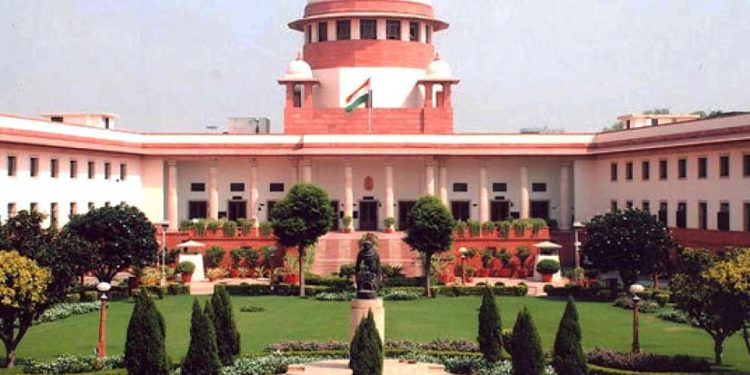New Delhi: The Supreme Court Wednesday asked a former apex court judge, who chaired a committee monitoring the probe into the Gujarat fake encounter cases, whether he had shared his final report with other members of the panel.
Former apex court judge Justice H S Bedi was appointed chairman of the monitoring committee probing 24 encounter cases from 2002 to 2006 in Gujarat by the Supreme Court.
The monitoring committee had submitted its report to the court in a sealed cover February this year.
A bench comprising Chief Justice Ranjan Gogoi and Justices S K Kaul and K M Joseph, was hearing a plea to make the report public.
The Gujarat government has objected to putting it in public domain, contending that it was not clear whether the views expressed in the final report were unilateral of Justice Bedi or he had shared it with other members of the monitoring committee.
The bench asked Justice Bedi to give his view on the questions raised to the apex court expeditiously.
“Let the chairman confirm to us whether he had shared the final report with other members of the monitoring committee,” the bench said.
In the order, the bench said it has perused the interim reports and the final report, and was of the view to request Justice Bedi to make it clear that as a Chairman of the committee he submitted the final report on his own or had he consulted and taken the view of other members.
“We request Justice Bedi to give his view expeditiously,” the bench said and ordered resealing of the envelope containing the final report and posted the next hearing after the winter break in January.
The top court was hearing two PILs on the matter which were filed in 2007 by veteran journalist B G Verghese and poet and lyricist Javed Akhtar, seeking a direction for a probe by an independent agency or the CBI so that the “truth may come out”.
Verghese passed away December 30, 2014.
During the hearing, Solicitor General Tushar Mehta, appearing for the Gujarat government, claimed that the final report of Monitoring Committee was that of Justice Bedi and he submitted it without consulting other members.
The Bench was informed by Mehta and advocate Prashant Bhushan, appearing for petitioners, that before the final report of Justice Bedi, the committee had submitted 10 interim reports since it was set up.
The Solicitor General said the PIL by two persons, who were not from Gujarat was restricted to one state only and “there was rampant abuse of the jurisdiction of this court”.
The petitioners only raised the issue of encounter cases in Gujarat and never expanded its scope for across the India, he said.
The Bench was apprised that the apex court-appointed monitoring committee had supervised the probe of the Special Task Force (STF) into the encounter killings and had submitted its final report in the registry.
During the last hearing December 3, the Solicitor General had said the state be given either one or two weeks time to file its response to the report of the monitoring committee and the PILs may be listed for hearing after X’Mas break.
The apex court in September 2016 had granted three more months to the STF to conclude its ongoing probe into the alleged fake encounter killings in Gujarat between 2002 and 2006.
The STF, working under the supervision of the monitoring panel headed by former apex court judge Justice Bedi, had probed the alleged fake encounters in the state.
The STF said it had probed 22 cases and two out of total 24 encounter matters remained to be investigated.
Justice Bedi was appointed as the Chairman of the already functioning monitoring committee set up by the state government March 2, 2012.
The apex court had asked the monitoring authority to place before it preliminary reports relating to the alleged fake encounters between 2002 and 2006 in Gujarat, purportedly showing a pattern that people from the minority community were targeted as terrorists. These were submitted periodically.
PTI






































